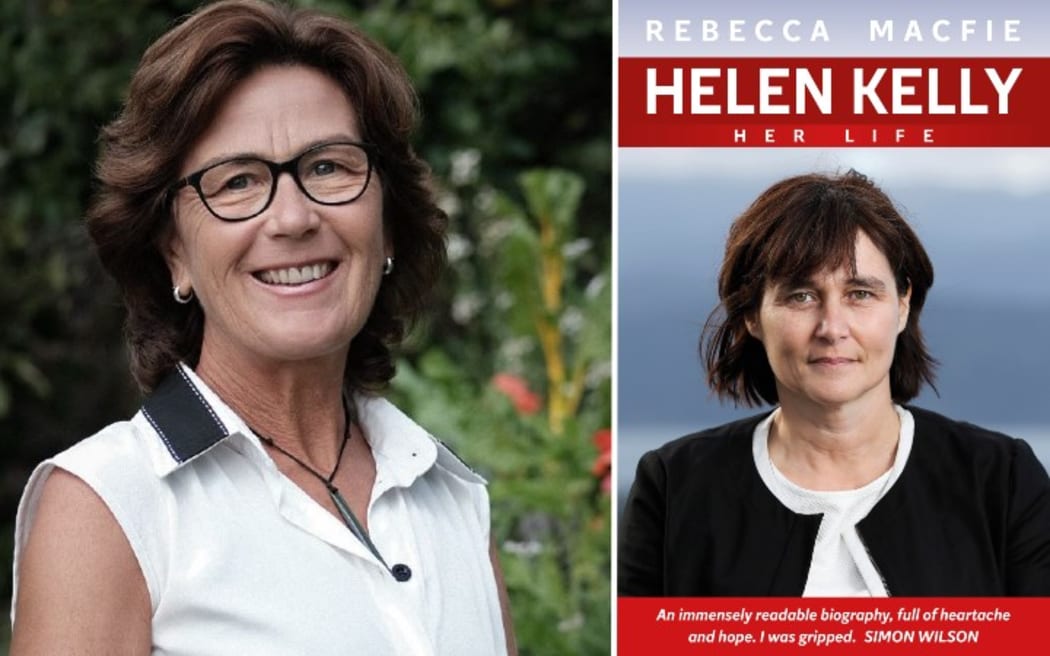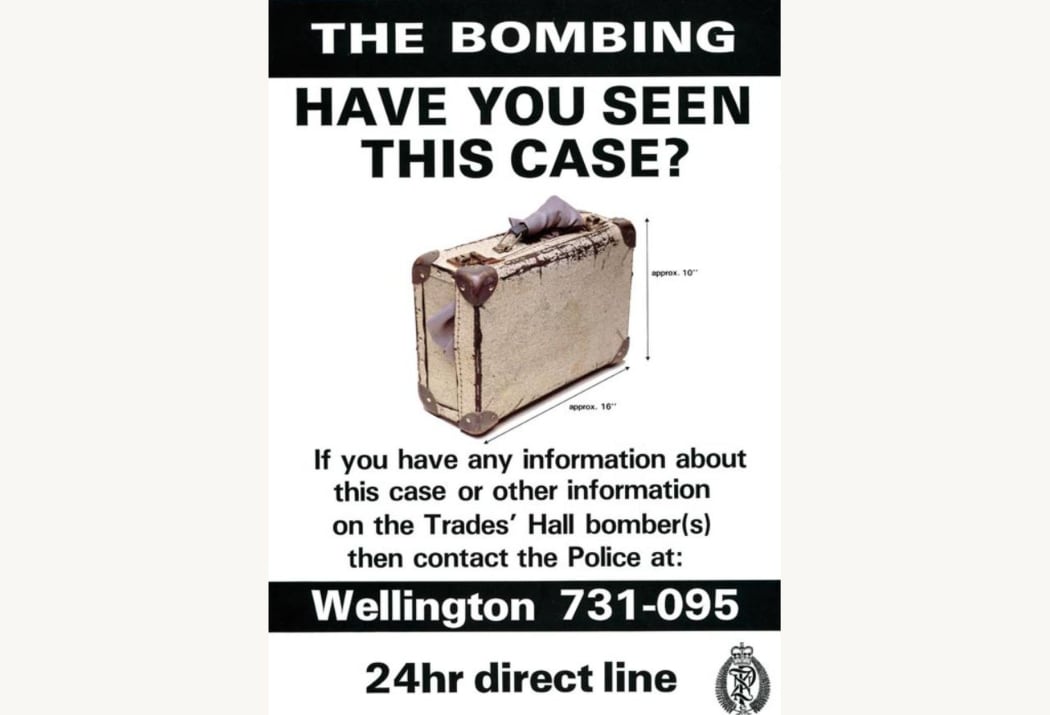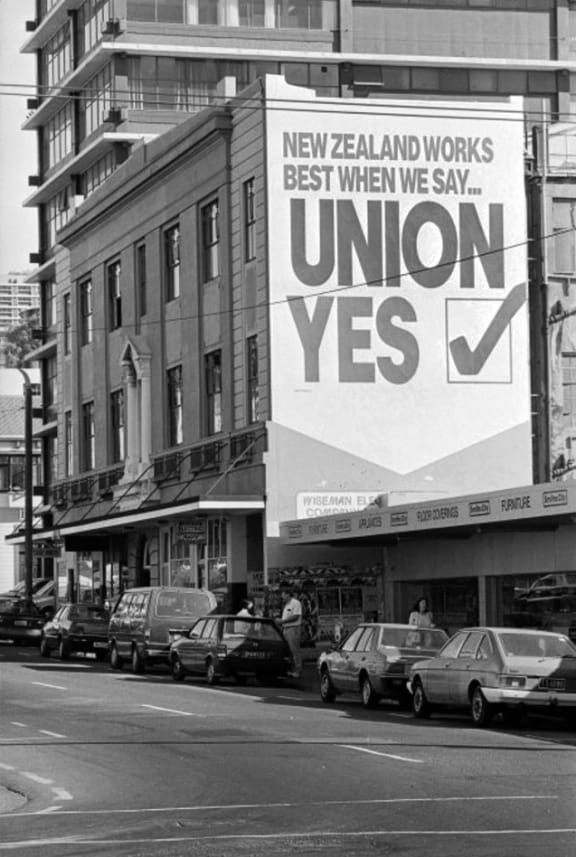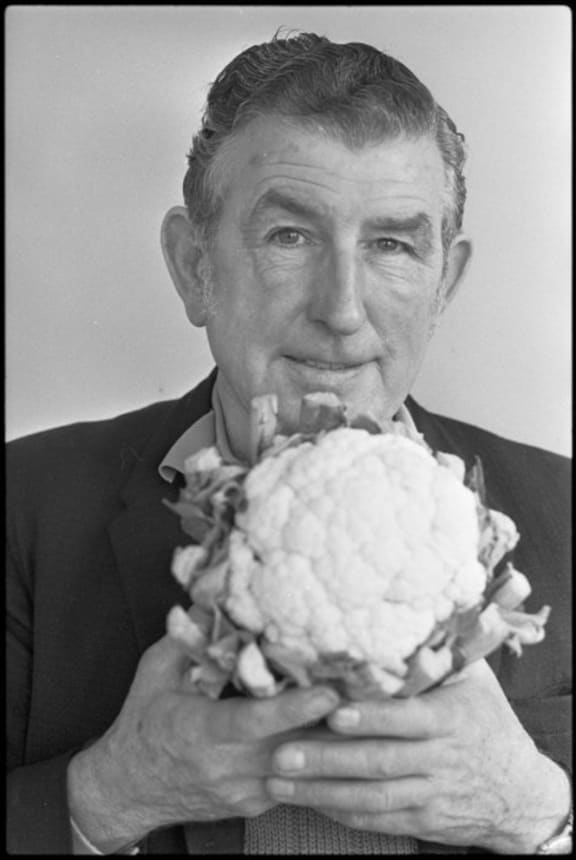
Rebecca Macfie, author of 'Helen Kelly: Her Life' Photo: Supplied / Sam Brett
According to Rebecca McFie, the Trades Hall bombing in 1984 was a pivotal moment for Helen Kelly, whose father Pat Kelly was a unionist working in the building.
Rebecca McFie:
The threat of violence sat with the household all the time. Helen’s parents Pat and Cath used to kind of shrug it off, but Pat had put in a panic button in Helen’s bedroom. It was on the floor by her bed and one of her friends accidentally set it off when they were playing one day. It set an alert off at the neighbours’ next door. I mean he’d come home one night to find people who he thought were spies in the house rifling through things. He’d had the car painted Commie Go Home.
He’d had tyres let down. There was one time when Helen answered the phone and there’s a man at the other end who describes in some detail how he’s going to kill Pat. And then she rings up Pat, who’s still at work, to say “there’s this man and he rang and he talked about how he’s going to kill you,” and Pat probably brushed it off.
So it’s hard to imagine what that was like. This is through the period when there’s a lot of strike action going on, particularly towards the end of the seventies. We had gone through a long period of no strike action. After the waterfront lockout of 1951 there were two decades of practically no strike action. During that period, though, inflation increases and oil shocks then you enter that period of much greater levels of strike action. Meat workers and wharfies and people working on the Think Big projects. And so there’s an increase level of hostility being directed at people like Pat Kelly.
And then you get into 1984 when Muldoon’s still in power. And the Trades Hall bombing. This was an act of terrorism in downtown Wellington. People will remember the Rainbow Warrior bombing which was only a year later, but I don’t think there’s the same internalised consciousness of the Trades Hall bombing in the same way. Which tells us how we think of the legitimacy of the trade union movement, and the rights of the movement to organise, to further the interest of workers.

Photo: NZ Police
Jo Malcolm:
So Ernie Abbott, the caretaker, was killed. Was [the bomb] meant for Pat?
Rebecca McFie:

Trades Hall, with union slogan. Photo: EVENING POST
Nobody really knows for certain. It seems quite random. The suitcase is there. Somehow it’s put into the building really early. It’s there by 7:30 in the morning in Trades Hall on a day when the management committee of the Wellington Trades Council is going to be meeting. So that would have been known. But the suitcase is there some time before that meeting begins.
It’s designed to blow up the minute anybody moves it. It’s quite a sophisticated piece of work. This was a busy building in those days. Police told me at one point there were two schoolgirls who snuck into the building at lunchtime. They looked at it, thought about stealing it, and didn’t.
So there’s any number of times it could have been detonated until 5:19 in the afternoon. And it’s just a weird miracle that it didn’t happen earlier in the day.
I don’t know if it’s possible to say it was directly aimed at Pat. It’s so random. And it could have killed so many people. In the end it’s poor old Ernie who’s cleaning up at the end of the day, and sees the suitcase still sitting there, and wants to tidy it away. He picks it up.
He’s harmed so badly he’s unrecognisable.
Jo Malcolm:
It’s really difficult to describe what that did to Pat. But it really changed him?
Rebecca McFie:

Ernie Abbott, with cauliflower. Photo: EVENING POST
Yeah. I think it left a permanent mark on Helen too. She and [her brother] Max knew Ernie well. Ernie lived in the flat at the top of the building and they would go in after school and wait for Pat to finish work, and play mini-golf, and eat his lollies, and they liked his dog. That was the nature of the relationship.
They grew up around people in the union movement, around ordinary working people, and so he was their friend. He looked after them. And now he’s blown up.
There’s no question it’s a defining moment for Helen, who was just under 20 at the time. On a later anniversary, she was being interviewed by a couple of journalists wanting reflections on the Trades Hall bombing. You know, “Your father was there,” and so on.
I saw some correspondence that showed how distressed she was. She was upset these young reporters didn’t know anything about it, and were somewhat dismissive of the level of violence against a completely innocent person that had been perpetrated here. That’s one of the things that made me realise how deeply it had marked her.
About the speaker
Rebecca Macfie
Rebecca Macfie is a Christchurch journalist and the recipient of more than 20 awards, including the Wolfsen Press Fellowship. She is the author of Helen Kelly: Her Life. Her previous book was Tragedy at Pike River Mine, published by Awa Press in 2012.
This session was recorded in partnership with WORD Christchurch

Photo: WORD Christchurch

